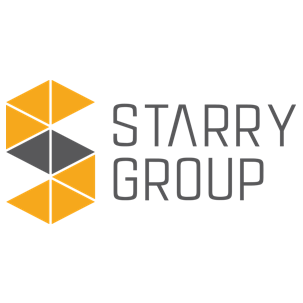Does Starry Support Israel? Unpacking Brand Stances In Geopolitical Conflicts
In an increasingly interconnected world, where geopolitical events profoundly impact global consciousness, consumers are more vigilant than ever about where their money goes. One of the most pressing questions that often arises amidst crises is whether the brands we patronize align with our values. This scrutiny extends to every sector, from fast food to beverages, leading many to ask: "Does Starry support Israel?"
The Core Question: Starry and Its Stance
When delving into the specific question of whether the beverage brand Starry supports Israel, it's crucial to consult publicly available information and official statements. Based on current widespread reports and the provided data, there is no explicit information or evidence suggesting that Starry, as a brand, has made public statements or taken actions that indicate direct support for Israel or any other political entity in the ongoing conflict. Unlike some other major brands that have faced intense scrutiny and made public statements, Starry has not been prominently featured in discussions regarding direct endorsements or condemnations related to the Israel-Palestine conflict.
In the absence of clear, explicit reports or official declarations from Starry itself, it becomes challenging to definitively ascertain its stance. This situation is not unique to Starry; many brands maintain a policy of neutrality on highly sensitive geopolitical issues to avoid alienating portions of their global customer base.
Why This Question Matters: The Rise of Brand Boycotts
The query about Starry's stance is part of a much larger global phenomenon. Amidst the ongoing crisis, "Global discussions on boycotting Israeli products and supporting brands increase." This heightened awareness is driven by various factors, including a desire among consumers to use their purchasing power to advocate for change and express solidarity. For instance, "Muslims are being urged even more by Islamic scholars to avoid Israeli" products, highlighting the significant moral and religious dimensions influencing consumer choices.
The motivation behind these boycotts is often rooted in a deep desire to effect change. As one sentiment puts it, "Our simple boycott list targets firms in Israel to support change, aiming to ease suffering and advance conflict resolution." This underscores a belief that economic pressure can play a role in addressing human suffering and promoting peace. Consumers are actively seeking to "check instantly which product or service belong to Israel or support it" to "boycott products from Israeli manufacturers and supporters" and "play your part in by joining the global" movement.
The Starbucks Case Study: A Glimpse into Corporate Neutrality and Controversy
While direct information on Starry is limited, examining the experience of other prominent brands, particularly Starbucks, offers valuable insights into the complexities companies face in navigating geopolitical conflicts and consumer expectations.
Starbucks' Official Stance: Neutrality Claims
Starbucks, a global coffee giant, has frequently found itself at the center of this very controversy. The company's official stance has consistently been one of neutrality. "Does Starbucks support Israel? No, Starbucks does not support Israel or any other political entity. The company remains neutral and does not take sides in political conflicts." This position has been reiterated multiple times. For example, "In the updated statement, Starbucks stated that it does not support any political or religious causes, adding that 'neither Starbucks nor its CEO, Howard Schultz (at that time),'" supported such causes.
Furthermore, "On Oct. 11, in a statement published on the Starbucks website, the company expressed sympathy for 'the innocent in Israel and Gaza.' The company did not say that it" supported one side over the other, emphasizing a humanitarian rather than political stance.
The Boycott Pressure and Counter-Claims
Despite these clear statements of neutrality, Starbucks has been "feeling pressure from boycott efforts that began last year in response to 'unfair' labor conditions and claims the coffee company supported Israel and funded its" actions. The public discourse surrounding Starbucks has been particularly intense, with some claims directly contradicting the company's official position. For instance, some reports suggest that "in the beginning of this genocide, after the 7th of October, Starbucks have announced that they are fully supporting Israel and all the money is going to..." This highlights a significant disconnect between corporate communication and public perception or counter-narratives circulating online.
The controversy is further fueled by historical associations or the personal views of company leadership. "Does Starbucks Support Israel? Starbucks, led by Chairman and CEO Howard Schultz, is an active Zionist and has shown support for Israel. Schultz received an award for his role in promoting a" stronger relationship between the U.S. and Israel. While a CEO's personal views or past affiliations do not necessarily dictate current corporate policy, they can significantly influence public perception and fuel boycott movements.
Ultimately, for Starbucks, "the answer is complex and nuanced. While direct evidence of current support for Israel is limited based on publicly available information," the perception of support or affiliation persists due to a confluence of factors, including historical context, leadership's past actions, and the virality of online claims.
The Challenge of Perception vs. Policy
The Starbucks case vividly illustrates the challenge companies face: even if their official policy is neutrality, public perception can be swayed by various factors, including misinformation, historical ties, or the personal actions of executives. "This article explores Starbucks’ historical and current ties with" the region, indicating how deeply rooted these perceptions can become. "Starbucks, the well-known global coffee chain, has been at the center of controversy surrounding the issue of supporting Israel. While the corporation itself does not," directly support, the public debate continues.
Beyond Starry and Starbucks: A Broader Look at Brands and Boycotts
The scrutiny extends far beyond these two brands. Consumers are increasingly interested in "a comprehensive list of companies that have publicly endorsed Israel’s actions or condemned Hamas’ attack." This includes "firms in Israel to support change" and those "affiliated with or providing support to Israel, whether it be in moral or material terms."
Other Beverage Brands Under Scrutiny
The beverage industry, in particular, has seen significant attention. When asked "What soda brands don’t support Israel?", it's noted that "there are no explicit reports or evidence suggesting that any major soda brands, such as Coca-Cola, PepsiCo, or Dr. Pepper Snapple Group, actively" support Israel. This suggests that for many large corporations, an official stance of neutrality is common, even if public sentiment tries to link them to one side or another. "Today, we’re diving into a controversy swirling around certain drink companies allegedly supporting Israel’s actions in Palestine," indicating the ongoing nature of these discussions.
Identifying Affiliations and Support
The demand for transparency is high. Consumers want to "find out who is and is not taking a stand for Israel and which brands and stars align with its values in this detailed list." This also includes "fast-food chains, widely recognized for their global reach and consumer impact, have come under scrutiny due to their associations, support, or investments linked to Israel." "From familiar fast food chains to beverage giants, these entities are entangled in diverse ways with regions and scenarios that draw attention due to their geopolitical impact."
The Political Dimension
It's also worth noting the political backdrop that influences these consumer choices. "Republicans support US backing for Israel until its military objectives in Gaza are achieved, while majorities of Democrats now oppose it." This political divide within a major consumer market further complicates how brands are perceived and whether their perceived actions align with the values of different consumer segments.
How Consumers Can Make Informed Decisions
For consumers seeking to align their purchasing decisions with their values, making informed choices requires diligent research:
- Consult Official Statements: Look for direct communications from the company regarding their stance on geopolitical issues.
- Distinguish Between Corporate Policy and Individual Actions: Understand that a CEO's personal views or past actions do not always reflect the current policy of the entire corporation.
- Verify Information: Be critical of claims circulating on social media. Cross-reference information from multiple, credible sources.
- Understand Nuance: Recognize that corporate stances can be complex and may not always fit neatly into a "support" or "don't support" category. Many aim for neutrality.
Final Summary
In conclusion, regarding the specific question of whether Starry supports Israel, current public information and available data do not provide explicit evidence of such a stance. Like many brands, Starry likely maintains a neutral position on geopolitical conflicts. The broader discussion, exemplified by the extensive scrutiny faced by Starbucks, highlights the immense pressure on companies to navigate sensitive global issues. While brands like Starbucks often declare neutrality, they frequently grapple with public perception, historical ties, and the personal affiliations of their leadership, all of which can fuel boycott movements. Consumers are increasingly empowered to make purchasing decisions based on their values, driving a global movement to scrutinize corporate affiliations and support. This ongoing trend underscores the growing importance of transparency and ethical considerations in the consumer-brand relationship.
- Agata Gajos
- Omaha Senior Photographers
- 1500 Calorie Meal Plan Indian Non Veg
- Florerias En Colima
- Bladensburg High School Photos

Starry Group - 駐日イスラエル大使館 経済部

Trump backs off two-state Israeli-Palestinian framework | CNN Politics

SERVICES - STARRY